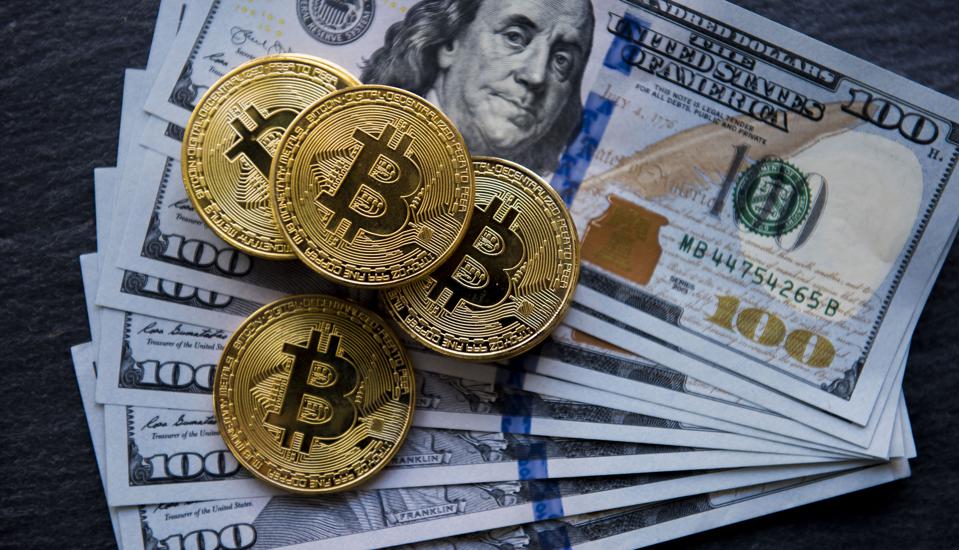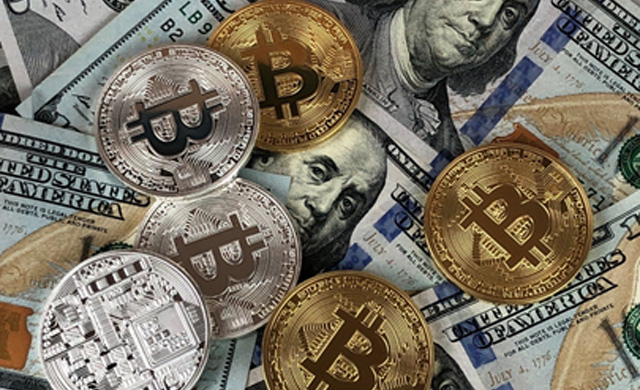Can Bitcoin Provide a Solution to Currency Devaluation?
Can Bitcoin Provide a Solution to Currency Devaluation?
 Currency devaluation, the deliberate reduction in the value of a nation's currency, is a significant economic challenge that can have far-reaching consequences for individuals, businesses, and entire economies. In recent years, amidst economic uncertainties and central bank policies, the question arises: Can Bitcoin offer a solution to currency devaluation? In this article, we'll explore the potential role of Bitcoin in addressing currency devaluation and its implications for the global financial landscape.
Currency devaluation, the deliberate reduction in the value of a nation's currency, is a significant economic challenge that can have far-reaching consequences for individuals, businesses, and entire economies. In recent years, amidst economic uncertainties and central bank policies, the question arises: Can Bitcoin offer a solution to currency devaluation? In this article, we'll explore the potential role of Bitcoin in addressing currency devaluation and its implications for the global financial landscape.
Understanding Currency Devaluation
Currency devaluation occurs when a government or central bank deliberately reduces the value of its currency relative to other currencies or commodities. This can be achieved through various means, such as printing more money (inflationary policies), lowering interest rates, or implementing currency pegs. While devaluation may provide short-term benefits, such as boosting exports and reducing trade deficits, it can also lead to higher inflation, decreased purchasing power, and economic instability in the long run.
Bitcoin as a Hedge Against Currency Devaluation
Bitcoin, often referred to as "digital gold," has gained traction as a potential hedge against currency devaluation and inflationary pressures. Unlike fiat currencies, which are subject to manipulation by governments and central banks, Bitcoin operates on a decentralized network that is immune to government interference and inflationary policies. With a fixed supply capped at 21 million coins, Bitcoin is inherently deflationary, meaning its value tends to increase over time as demand outpaces supply.
In countries experiencing high levels of currency devaluation or hyperinflation, Bitcoin can serve as a store of value and a means of preserving wealth. By converting fiat currency into Bitcoin, individuals and businesses can protect their savings from losing value due to inflationary pressures. Furthermore, Bitcoin's borderless nature allows for easy transfer of wealth across borders, making it particularly attractive in regions with unstable or depreciating currencies.
Case Studies and Real-World Examples
Several countries have experienced currency devaluation or hyperinflation in recent years, prompting citizens to seek refuge in Bitcoin as a hedge against financial instability. Venezuela, for example, has been plagued by hyperinflation, with its national currency, the bolivar, losing value at an alarming rate. In response, many Venezuelans have turned to Bitcoin as a means of preserving their wealth and accessing international markets.
Similarly, in Argentina, where the peso has faced significant devaluation, Bitcoin adoption has surged as citizens seek alternative stores of value. Inflation rates exceeding 50% annually have eroded the purchasing power of the peso, driving individuals and businesses to seek refuge in Bitcoin and other cryptocurrencies.
Implications and Considerations
While Bitcoin offers potential benefits as a hedge against currency devaluation, it is not without its challenges and limitations. Bitcoin's price volatility and regulatory uncertainties can present risks for investors and users, and its adoption as a mainstream currency remains a subject of debate. Additionally, Bitcoin's scalability issues and energy consumption have raised concerns about its long-term viability as a global currency.
Furthermore, while Bitcoin may provide a hedge against currency devaluation for individuals and businesses in certain circumstances, it is unlikely to replace fiat currencies entirely. Instead, Bitcoin is more likely to coexist alongside traditional currencies, serving as a complementary asset class and a hedge against economic uncertainty. Bitcoin holds the potential to serve as a hedge against currency devaluation and inflationary pressures, offering individuals and businesses a means of preserving wealth and accessing financial markets beyond the reach of traditional banking systems. While Bitcoin's decentralized nature and fixed supply make it an attractive store of value in environments plagued by currency devaluation, its adoption and mainstream acceptance remain ongoing processes. As the global economy continues to evolve, Bitcoin's role in addressing currency devaluation will likely become increasingly significant, shaping the future of finance and offering a new paradigm for monetary sovereignty.
Bitcoin holds the potential to serve as a hedge against currency devaluation and inflationary pressures, offering individuals and businesses a means of preserving wealth and accessing financial markets beyond the reach of traditional banking systems. While Bitcoin's decentralized nature and fixed supply make it an attractive store of value in environments plagued by currency devaluation, its adoption and mainstream acceptance remain ongoing processes. As the global economy continues to evolve, Bitcoin's role in addressing currency devaluation will likely become increasingly significant, shaping the future of finance and offering a new paradigm for monetary sovereignty.
Thank you for reading!
Find useful articles to read: HERE





















![[ℕ𝕖𝕧𝕖𝕣] 𝕊𝕖𝕝𝕝 𝕐𝕠𝕦𝕣 𝔹𝕚𝕥𝕔𝕠𝕚𝕟 - Did This Poor Baby Make A Profit On The BTC He Sold?](https://cdn.bulbapp.io/frontend/images/255151e6-9e83-4151-9644-80af06e53b74/1)












